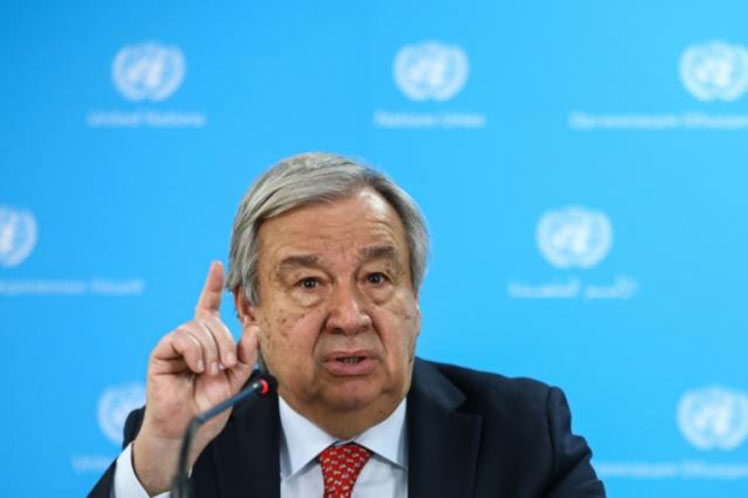According to a new report by the UN Global Crisis Response Group, entitled A World of Debt, a total of 52 countries – nearly 40% of the developing world – are in “serious debt trouble”, Mr. Guterres said, backing calls for them to receive urgent fiscal relief.
Last year global public debt reached a record $92 trillion, of which developing countries shoulder 30% – a “disproportionate amount”, the UN chief stressed.
He warned that 3.3 billion people suffer from their governments’ need to prioritize debt interest payments over “essential investments” in the Sustainable Development Goals (SDGs) or the energy transition.
“And yet, because these unsustainable debts are concentrated in poor countries, they are not judged to pose a systemic risk to the global financial system,” the UN Secretary-General added.
He insisted that the catastrophic levels of public debt in developing countries are a “systemic failure” that resulted from colonial-era inequality built into “our outdated financial system”.
The UN chief stressed that on average, borrowing costs are four times higher for African countries than for the United States and eight times higher than for the wealthiest European economies.
Poorer nations rely increasingly on private creditors who charge “sky-high” rates and find themselves forced to borrow more “for their economic survival”, he said.
From an important financial tool, debt has become “a trap that simply generates more debt”, Mr. Guterres deplored.
The new UN report proposes a number of urgent remedies, including an “effective debt workout mechanism” that supports payment suspensions, longer lending terms and lower rates, “including for vulnerable middle-income countries”, the UN chief said.
The report also calls for a “massive” scale-up of affordable long-term financing, by transforming the way that Multilateral Development Banks function, re-engineering them to support sustainable development and leveraging private resources.
pll/mgt/ifs









